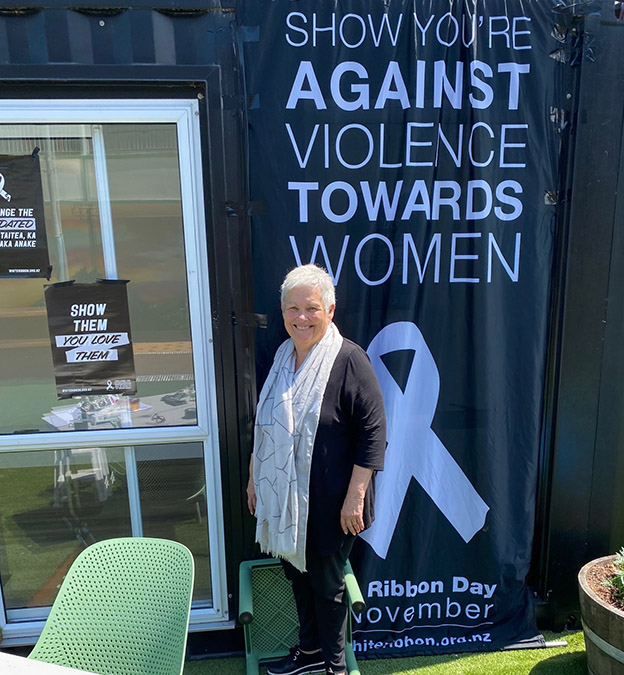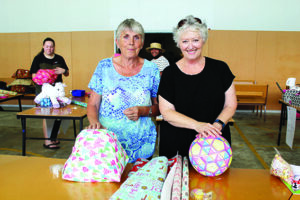In extraordinary times there needs to be “extra vigilance and extra respect”, says the Hauraki Family Violence Intervention Network, as Covid-19 and Christmas begin to cross paths.
With the holiday season fast approaching, normal Christmas stresses were starting to combine with “vaccinated versus unvaccinated” issues and people reconnecting after long periods of time, network team member and spokesperson Sally Christie said.
She was at a White Ribbon event in Thames on November 25, held by the network, and received a lot of interest from passers-by.
“I think people still find it challenging to think about their own relationships… and to reflect on what they can do within their own homes and within their workplaces to challenge old thinking,” she said.
“What I’ve found over the years is that young people are learning about relationships differently than what us older people did; however, the challenges remain for them, and the stereotypes are still there.”
Sally said people still sometimes looked for “authoritarian” partners; however, pursuing relationships with those who were kind, empathetic, and found peaceful resolutions, potentially provided “much better outcomes”.
And with Christmas right around the corner, she said normal holiday-season stresses were combining with “vaccinated versus unvaccinated” issues and people reconnecting after long periods of time.
“My message would be to think before you speak; look after yourself really carefully so that your trigger spot or your fuse is as long as possible; and keep it simple. This is a Christmas like no other, so don’t try and have everything you normally would have.”
White Ribbon Day, held annually on November 25, is an international day when people wear a white ribbon to show that they do not condone violence towards women.
According to White Ribbon NZ, most violence by men against women takes place in the home, with an average of 14 women a year killed by their partners or ex-partners.
Every year, there are more than 3500 convictions recorded against men for assaults on women, and one in five women will experience sexual assault or sexual interference at some point in their lives.
Sally said the network acknowledged there were different sorts of abuse, including same-sex abuse, and LGBTQ abuse.
The one-day events helped to raise awareness and create opportunities, but it was “only the beginning” of their work.
“We, as a network, need to be influencing workplaces and homes to treat each other differently and call out behaviour that isn’t okay,” she said.
“I’m sensing a lot of stress and uncertainty right through our community, so now is the time for extra vigilance and extra respect.”




